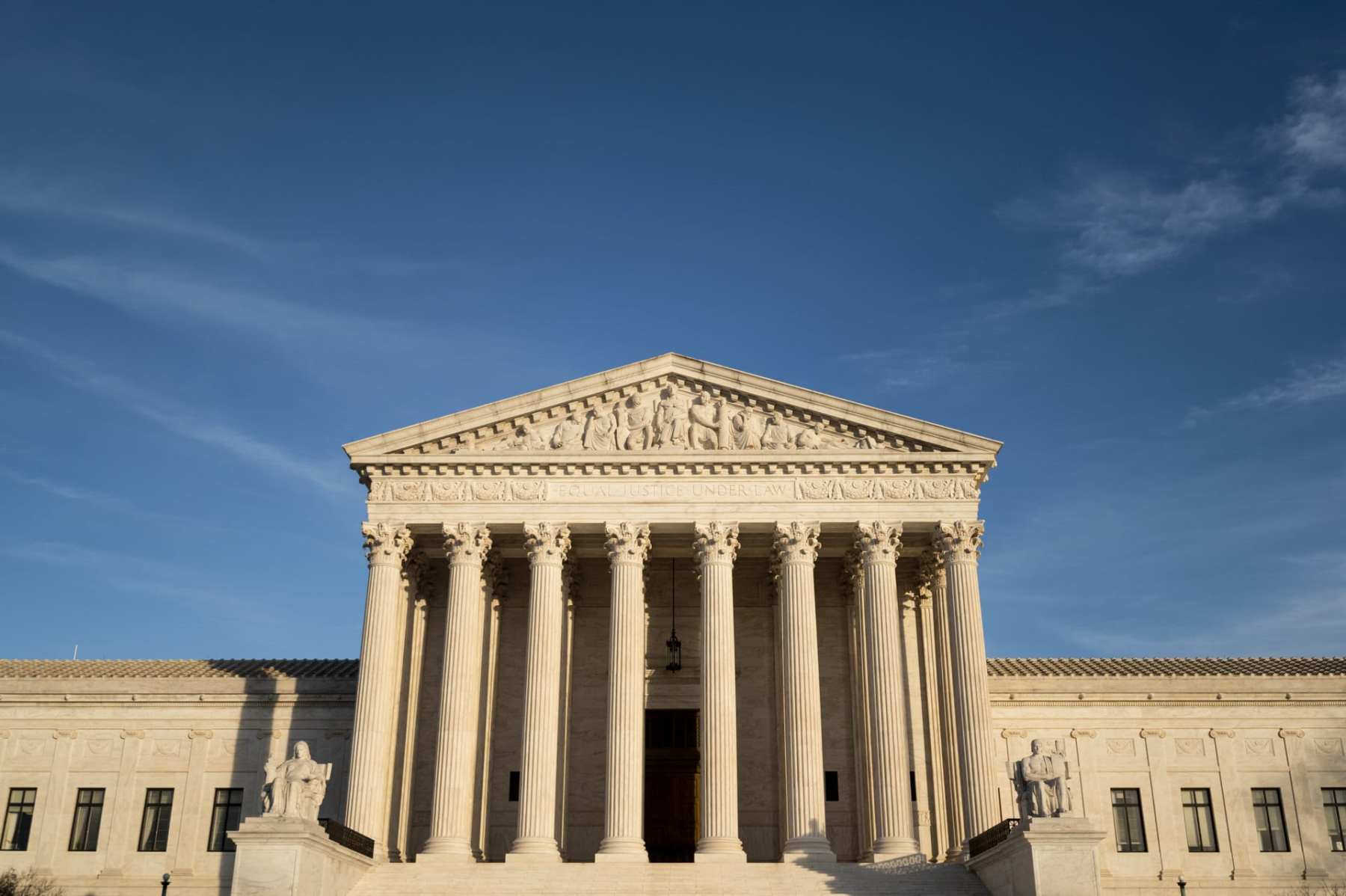The Supreme Court will hear a case this fall that could roll back the constitutional right to an abortion established by Roe v. Wade.
The case, Dobbs vs. Jackson Women’s Health Organization, concerns a Mississippi law that bans abortions after 15 weeks. Under Roe v. Wade, people are guaranteed the right to an abortion until the fetus is medically able to live outside the womb, typically around 24 weeks, though the definition varies from case to case.
Subsequent cases have granted states the right to regulate abortion access, and those rulings in turn have opened the door to many states — particularly those considered hostile to abortion rights — passing laws that often make it harder to get an abortion.
But those restrictions, while targeting the circumstances under which one may receive abortion, did not take direct aim at the core protection of Roe v. Wade: the right to have an abortion up until the fetus is viable. The 15-week ban is seen as a likely candidate to weaken that protection.
In accepting the case, the Supreme Court said it would specifically examine whether “all pre-viability prohibitions on elective abortions are unconstitutional.” A ruling is likely to come down next summer. The court had waited for months before deciding whether to hear the Mississippi case, fueling speculation among observers that its members may have been unsure about whether they wanted to weigh in on this form of ban, or on a less sweeping restriction. The law had so far been blocked by the 5th U.S. Court of Appeals.
Laurie Sobel, the associate director of women’s health policy at the Kaiser Family Foundation, said it was “alarming” that the Supreme Court decided to review the case even after a lower court ruled in agreement with Roe v. Wade.
The Supreme Court currently has six conservative justices, including three appointed by former President Donald Trump, who long vowed to nominate members who would undo the protections granted by Roe v. Wade. Advocates across the ideological spectrum believe the current court makeup to be unfriendly toward maintaining those protections.
“It’s been a long time coming,” Sobel said. “Many states have gerrymandered districts that have resulted in legislatures that are very interested in abolishing in abortion. Trump filled over 200 federal court seats, and now these states see an opening.”
The number of abortions has steadily decreased in the United States. over the last several decades, often attributed to the increased affordability and accessibility of contraception. Depending on how the court rules, future access to abortion might depend entirely on where one lives, Sobel said. In the last several years, more than 250 abortion clinics have closed. Currently, six states — including Mississippi — only have one abortion clinic. Three states only have two clinics and another six states have three each.
It’s not yet clear if upholding the ban would mean other, similar bans would also be immediately upheld. If so, the impact would be vast.
As of last fall, 16 states had laws that would immediately ban abortion if Roe v. Wade was overturned, per a briefing by the Kaiser Family Foundation (KFF). However, legal experts are unsure if they would need to be passed once again following any court ruling.
As of May 1, more than 530 abortion restrictions have been introduced in 2021, an unprecedented number over such a period of time, according to a tally by the Guttmacher Institute. Already, 61 abortion restrictions in 13 states have been passed this year alone and at least 16 states had attempted to ban abortion at some point before viability. Texas is expected to be the latest state to pass such a restriction — Gov. Greg Abbott has indicated he will sign a recently passed bill that would ban the procedure after six weeks of pregnancy, a “heartbeat bill” that has also passed in several states, including Ohio, Georgia, Louisiana, Missouri, Alabama and Kentucky. None of the bills went into effect due to immediate court challenges.
During a press conference on Monday, White House Press Secretary Jen Psaki said she wouldn’t comment on the Supreme Court’s decision to take the case but said more generally that the right to health care and the right to choose have been under “withering and extreme attack” these past four years.
“The president and the vice president are devoted to ensuring that every American has access to health care, including reproductive health care — regardless of their income, zip code, race, health insurance status or immigration status,” she said.
Psaki also said President Joe Biden is committed to codifying Roe v. Wade regardless of the outcome of this case.
“Make no mistake,” Elizabeth Nash, the institute’s principal policy associate on state issues, said in a statement. “The purpose of any abortion ban — including this 15-week ban in Mississippi — is to snowball into a outright ban on all abortion at any point in pregnancy and for any reason.”
According to a KFF survey published in January 2020, the majority of Democrats and independents do not want to see Roe v. Wade overturned, but most Republicans do. Across partisan lines, nearly 40 percent of women identify as “pro-life.” And about 27 percent of women believe it is currently “too easy” for women to access abortions, while 37 percent think it is “too difficult.”
In a responding press teleconference, Nancy Northup, the president and chief executive of the Center for Reproductive Rights said that “alarm bells should be going off” for people who want to make sure abortion remains safe and legal.
“The Supreme Court has heard various cases over the years on different issues, but never before an abortion ban case,” Northup said. “The Court has previously refused again and again to review these kinds of laws because they are clearly unconstitutional and in violation of 50 years of precedent.”
Katie Glenn, the government affairs counsel for Americans United for Life, said in a statement that the country’s highest court finds itself “grappling with abortion” every few years and argued its “true constitutional business” is to protect the human right to life.
The vast majority of abortions occur early in pregnancy, with more than 90 percent performed during the first trimester — at or before 13 weeks — according to the latest KFF data. Abortions that occur at or after 21 weeks only account for less than 2 percent of all abortions.
Maureen G. Phipps, the chief executive officer of the American College of Obstetricians and Gynecologists, said in a statement that abortion restrictions like Mississippi’s ban worsen existing inequities in the health care system and disproportionately impact people of color.
“Abortion access in the United States is in crisis,” Phipps said. “Across the country, politicians are advancing legislation that would impose professional, civil and even severe criminal penalties on clinicians for providing safe, high-quality abortion care to their patients.”





